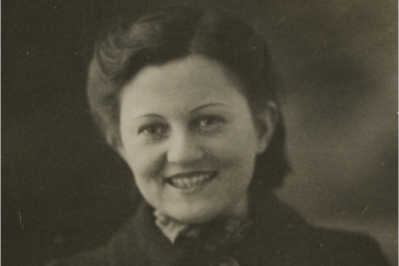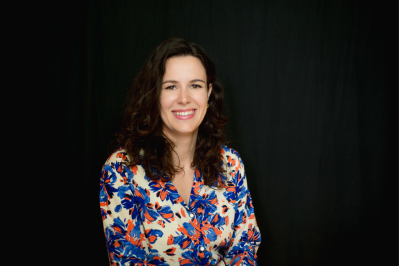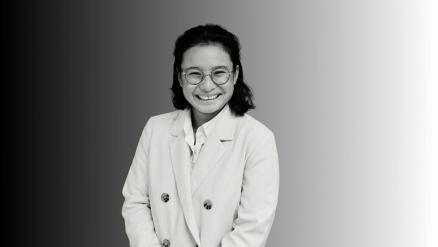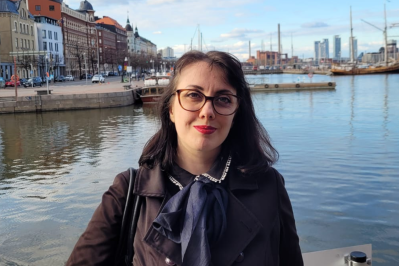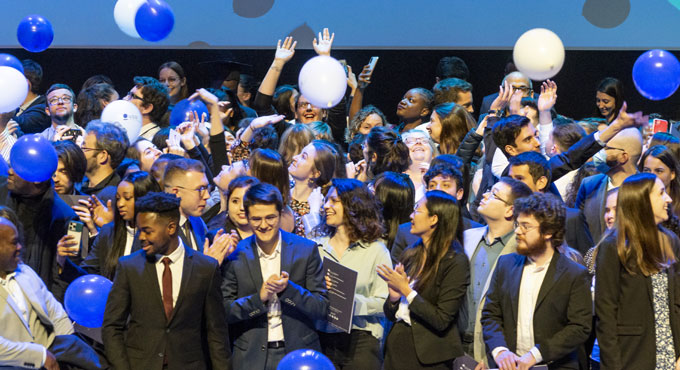News
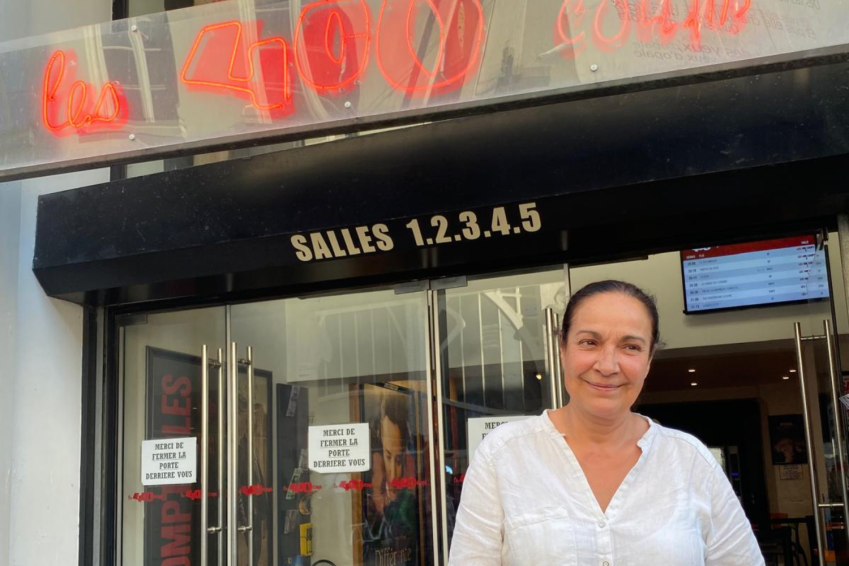
Fabienne Godet, DESS in social psychology (1989), film director
To coincide with the release of her first comedy, Le Répondeur, Fabienne Godet talks to UCO Alumni about her unique career path, the impact of her training in social psychology , and what goes on behind the scenes of this new film.
Le Répondeur features Baptiste (Salif Cissé), an impersonator in search of recognition, who agrees to become the telephone voice of Pierre (Denis Podalydès), a famous writer wishing to withdraw from the world to write. But as he takes on this role, this vocal double ends up interfering in the author's life, turning both their lives upside down.
You adapted Le Répondeur by Luc Blainvillain. What made you want to turn it into a film?
What struck me immediately was the originality of the pitch: a person pays someone to answer the phone for them... I'd never seen anything like it, in comedy or anywhere else. And it's so topical in terms of the problems of screen addiction! We're all hyper-connected, yet we're often connected to nothing: cut off from ourselves, from the real world, from silence. This discrepancy between connection and isolation immediately appealed to me.
It's also your first step into comedy. Why this change of register?
It's true, Le Répondeur is my sixth feature film, but up until now, I've mainly explored the register of drama. I was looking for a new challenge, something different. This project lent itself perfectly to that: the pitch is both original and funny - entrusting your calls to someone else to see what difference it makes to your life. It spoke to me immediately, especially with my background in psychosociology.
What I read between the lines was the possibility of real change. And that's a theme that touches me deeply, because change - real change - is one of the most difficult things there is. This is what Baptiste experiences in the film.
Technically, Le Répondeur also represented a major sound challenge. Everything was done by hand, without artificial intelligence: meticulous work, syllable by syllable, to fuse the voices of Denis Podalydès and Salif Cissé. We collaborated with talented impersonators such as Michaël Grégorio, Eklips and Fabien Le Castel. It was a real risk-taking exercise... and I like that.
Did your training in social psychology influence the film?
Completely. Delegating his calls is a seemingly insignificant gesture, but one that opens up the possibility of change. Pierre Chozène is a prisoner of his relationships and his past. By entrusting this part of himself to another, Baptiste, he allows himself to change. It's a bit like the nine dots connected by four lines exercise: you have to step out of the frame to see things differently. The film tells the story of this pivotal moment, when, thanks to the ultra-solution of entrusting his life to someone else, Baptiste takes initiatives that Pierre Chozène would have been incapable of taking.
Baptiste, is that you?
I am Fabienne Godet (laughs)! Like Baptiste, I'm a "transclasse": I had to knock on a lot of doors to get ahead in a milieu that wasn't my own. I'm the daughter of peasants from Anjou, the only one in my CM2 class to have studied so hard and to have gone to Paris with a dream. I've had to go it alone, with no flashes of brilliance, but with steadfastness.
But I also see myself in Pierre Chozène's character, as regards the relationship with time: I'm 60, and the question of life choices has become central. Every choice becomes more meaningful. The line in the film "It's always later than you think" touches me deeply.
On the other hand, unlike Chozène, I was never isolated: at home, there were always fifteen people at the table and the house was always open.
The film features an unlikely meeting between two worlds. Was this an issue for you?
Yes, it's a theme close to my heart. In Nos vies formidables, I had already shown that mutual aid transcends social class. Here, a Parisian intellectual is turned upside down by an amateur actor from another world. Baptiste is going to help Pierre Chozène reinvent himself, to live again, to reconnect with real life. That's what interests me: people before status.
And for you, how can you overcome your own hang-ups, without the intervention of a vocal double like Baptiste?
I'm a great believer in the power of the encounter. Sometimes, a sentence said at the right moment by a friend, a therapist or a stranger can change everything. We need an encounter: a look, a listening ear, a presence.
Sometimes we're bogged down in our past, in what we say, in fear of the consequences... Baptiste doesn't care, and will help Pierre Chozène develop the best version of himself.
Let's get back to the Université catholique de l'Ouest. What memories do you have of your studies?
A lot of gratitude. Great teachers have marked my career. The training was practical, demanding and humane. We were out in the field from the very first year. This closeness and benevolence helped me to believe in myself.
Alongside my courses, I attended the film analysis courses organized at Les 400 Coups by Claude-Eric Poiroux [Editor's note: UCO alumnus, Bachelor of Arts (1969)] almost every weekend. I took a course in social psychology at the same time as making my first short films.
Is there a film you can see again and again and never tire of?
Comencini's The Misunderstood moves me every time. Terrence Malick's The Thin Red Line , The Godfather... I can watch all three in one go.
And I admire Kubrick for his ability to renew himself with each film.
Any final words?
Le Répondeur is still playing and will continue to do so, with remakes planned in Spain, Germany and Italy. This is great recognition for a film that I hope will touch the heart.
Interview conducted by Benjamin Izarn (DU Éthique, 2017) and Bérénice Velin (licence Information-communication, 2011), creator of the cinema podcast Le Canap' de B', with the help of Julien Gautier (master's degree in social psychology, 2012).

 9
9







